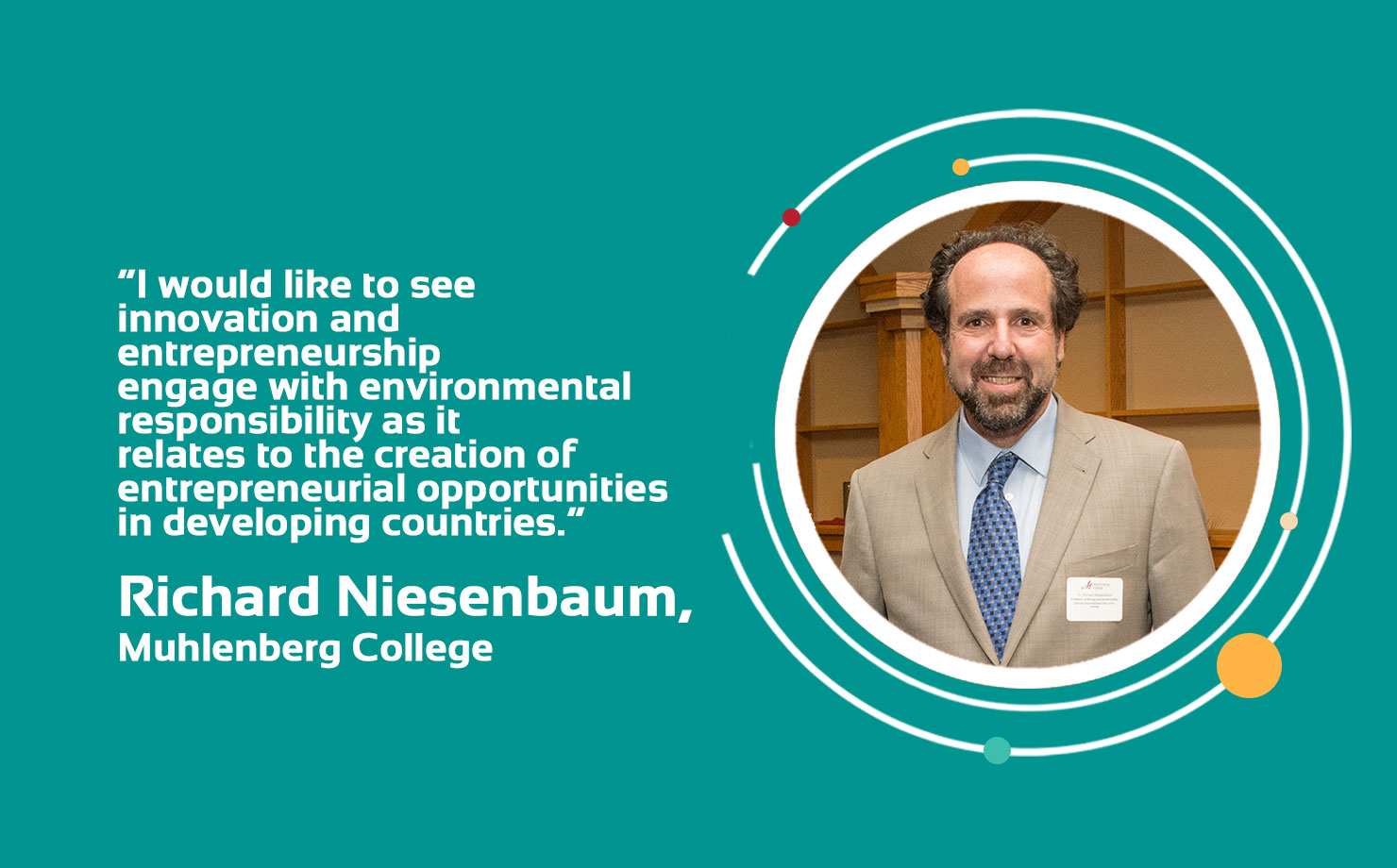
We continue our series highlighting educators within the VentureWell network who are doing good work—faculty members who are catalyzing change in higher education and inspiring students to impact the world through invention. This month’s faculty spotlight is Richard Niesenbaum, professor of biology and director of sustainability studies at Muhlenberg College. Niesenbaum was one of the recipients of our sustainable design Faculty Grant in 2018.
How did you get interested in teaching entrepreneurship?
My work in the area of sustainability led me to my interest in entrepreneurship. I have found that solutions to social and environmental issues, particularly in the developing world, often come from entrepreneurship. Innovation can address these problems, and socially-conscious entrepreneurial endeavors can offer economic opportunities for many who are disenfranchised from other income-generating activities. Also, I live in the heart of Allentown, PA, which has a large immigrant population. I have seen how entrepreneurship can empower people who lack other kinds of opportunities. So, given that I teach about sustainable problem-solving and employ community-based learning, entrepreneurship has become central to my pedagogy.
What is your favorite thing about teaching?
We are bombarded with an endless supply of bad news billed as insurmountable problems. This often leaves students with a sense of powerlessness, disempowering guilt, or plain old apathy. My favorite part about teaching is leading students to see that there are solutions, and that they will significantly contribute to them as the most tech-savvy, collaborative, and innovative generation.
Where would you like to see the field of entrepreneurship in five years?
I would like to see innovation and entrepreneurship engage with environmental responsibility as it relates to the creation of entrepreneurial opportunities in developing countries.
I would also like to see the field explore and develop new models and strategies for ventures that can further our problem-solving capabilities. Examples include hybrid value chains, cooperatively-owned businesses, circular business models, and private-public partnerships.
What are the challenges you’re tackling in your work today?
Figuring out how to best empower students and capitalize on their potential is the greatest challenge that I face. The nature of our student body is changing. We must do our best to change our modes of teaching to accommodate them.
What books on entrepreneurship and innovation have you been reading lately?
I am a little bit biased here, but the book that I just completed for Oxford University Press, Sustainable Solutions: Problem Solving for Current and Future Generations, has occupied much of my attention. Every chapter has examples of entrepreneurial problem-solving for sustainability. It focuses on systems thinking, Life Cycle Assessment (LCA), and with the help of my colleague, Rita Chesterton, I was able to provide details on the business model canvas and the social lean canvas.
What’s your most useful classroom activity or assignment?
The systems thinking exercise that I learned at the sustainability-entrepreneurship workshop at VentureWell last year is incredibly useful. My students enjoy it and they tell me that it allows them to fully understand the problems they are trying to solve. I see evidence for this in their writing as well.
Learn more about our Faculty Grants here.